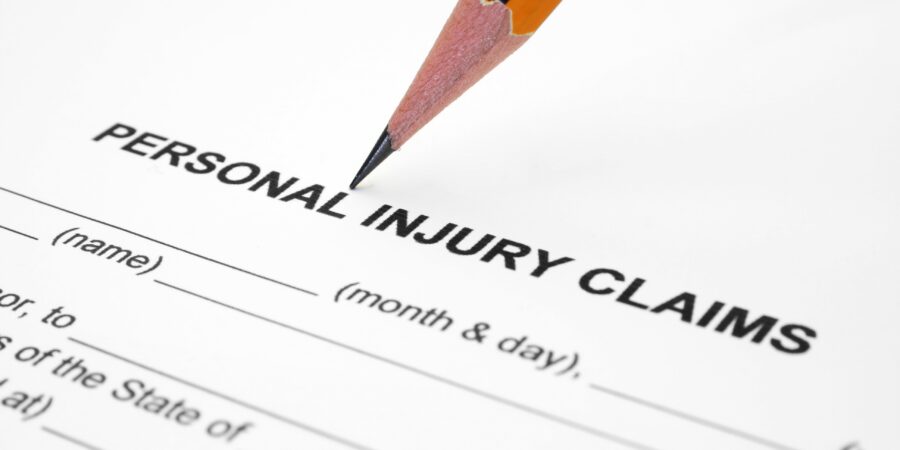Filing a Personal Injury Lawsuit
After being involved in an accident or an injury where you are not at fault, you may have a lot of questions about how to get the most compensation possible. Whether you have been in a car accident, an accident at work or a slip and fall incident, filing a personal injury lawsuit may be a necessary process to ensure that your expenses are covered.
Many cases are settled outside of court, but if the offending party disputes your claim, then a lawsuit may be the only option for you to receive the compensation you deserve. A personal injury lawsuit can be a complex process, so it is important to know your options and what to consider.
Why You Should File a Personal Injury Lawsuit
After an injury, you may need medical treatment or time off work, and you deserve the proper compensation for your losses. Filing a personal injury lawsuit can ensure that you receive compensation, especially if the other party does not admit fault or you experience difficulty with an insurance company.
Even if you are making progress with an insurance settlement, you should keep this route in mind to ensure that you are receiving the most compensation that you can get to reach as close to a full recovery as possible. You should never settle a case and end up with less than you need for your injury expenses.
It is often a good idea to speak with a personal injury lawyer to make sure that you consider all of your options and do not settle without receiving maximum compensation.
What is the Difference Between a Lawsuit and Insurance Claim?
An insurance claim is when the other party admits fault, and the insurance company agrees to provide full compensation for the injuries that occurred. This is usually quicker and simpler as the insurance company will assess your damages and expenses and provide you a check to cover them.
If there is a dispute in the claim process, and you feel that the other party is not providing you a fair settlement, a lawsuit will usually be the better option. This is when you present your side of the facts in court documentation and demonstrate your damages to determine a fair amount for the defendant to compensate you for your losses. The process will provide the opportunity to present all of the facts and information and often lead you to receive the proper compensation.
How Long Do You Have to File
Usually, you should consider starting the process as soon as possible. However, you must also make sure that you have a full understanding of your injuries, damages and treatment plan before resolving your case. Typically you want to reach maximum medical improvement”, or MMI, before settling your case. This means that you are as healthy and recovered as you can be following the injury.
Overall, having a full understanding of your injuries is crucial. Following an accident, it is often possible for injuries or damages to arise later. Settling your case before understanding all of the damages may leave you with less compensation than you need to cover your expenses.
The time limit that you have to file a personal injury lawsuit will depend on the law in your state and the statute of limitations, or deadline to file a claim, so it is important that you do your research when considering filing. You should keep the statute of limitations in mind in case you do not file right away and end up determining later that the insurance claim is not what you were hoping for.
Each state has different laws, but the statute of limitations is usually around two to three years. Depending on the state, the statute of limitations typically begins the day the injury occurs or the day the injury is discovered. Once the statute of limitations has run out, you are no longer able to file a lawsuit unless you meet a rare exception. Exceptions include mental incapacity, evidence of fraud or being injured as a minor. Also, a statute of limitations only refers to the time you have to file the lawsuit and not the amount of time it takes to complete the lawsuit.
How to File Your Personal Injury Lawsuit
Filing a lawsuit can be a long and complex process. Before filing a lawsuit, you will need to ensure that you are not at fault for the incident, or that the other party has at least partial responsibility or demonstration of negligence in the incident. If another party is at fault for the incident, the best first step is to pursue an insurance claim or settlement, which involves working with the insurance company and the offending party to reach an agreement for compensation of your damages.
However, this process will not be effective if there is not an adequate admission of guilt or there is a dispute surrounding the facts of the incident. If you determine that there was negligence involved and that the insurance claim or settlement process will not benefit you properly, you will likely want to proceed with a lawsuit. In this case, you will need to file a set of documents with the court to begin.
This includes a complaint, which states the facts and foundation of your case, and in many places, a summons, which is a document that states the defendant and informs them that they are being sued. Once the defendant is served with the summons and the complaint, they will have the opportunity to respond to the documents, either admitting, denying, or neither admitting nor denying each of the allegations. The defendant also has the opportunity to file a motion to dismiss the case. If granted by the court, they can throw out all or part of your complaint against the defendant.
How the Lawsuit Process Works
The legal process involves several deadlines and documents that will lead to a trial. A trial may last several days as both sides present their observations of the incident. This can lead to an appeals process that can last several months or even several years. If the defendant loses, they will be required to provide the damages established by the court.
It is possible to settle the case outside of court if the offending party or insurance company eventually decides to admit fault or decides to provide you the proper compensation for your injuries. Settlement outside of court is how most personal injury cases are resolved. This can happen at any point during the process. If this does happen, it is worth reiterating that you should be sure that this amount is adequate before settling. Consulting with a lawyer may be a good option to discuss your options and ensure that this is the best amount that you can receive in the process.
It is important to consider that the insurance company has plenty of experience in handling cases in court. Although it is possible to represent yourself, you are at a disadvantage in experience and knowledge surrounding the process. Especially when you are working through an injury and receiving treatment, managing the legal process at the same time can be daunting. An experienced lawyer can provide you the support and expertise that will make the process much smoother.
Overall, filing a personal injury lawsuit is a detailed process, and it can be intimidating. It is important to be up to date on deadlines and procedures and ensure that you do not settle too soon. However, it is a path that many people take to ensure that their damages are covered, and depending on your case, a lawsuit may be the best way for you to receive adequate compensation. With the help of the right personal injury lawyer, you can start the path to receiving the compensation that you deserve for the damages you have faced.
Here at JT Legal, we operate under hundreds of different practice areas and we will be the best personal injury attorney to fight tirelessly for your case.



